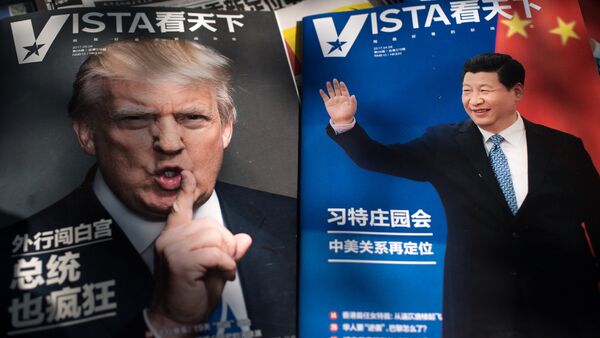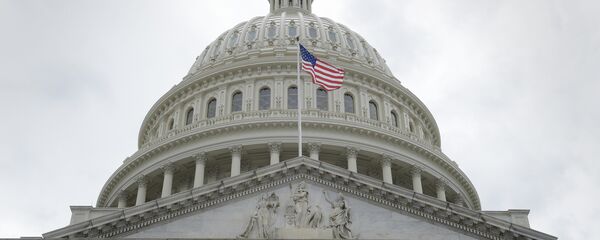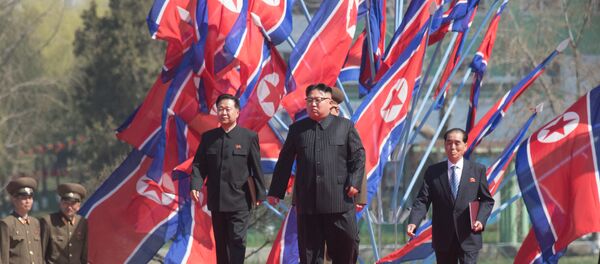The Trump administration is preparing sanctions against China in an effort to pressure Beijing into exerting more control over North Korea, the US media reported on Monday.
Trump's aides have spent several days discussing possible economic measures, such as trade restrictions, and are expected to announce a final decision which is expected as soon as this week, White House officials told Politico.
The discussions in Washington come as Pyongyang continues to test intercontinental ballistic missiles. On Friday, North Korea launched a missile which flew 732 kilometers (454 miles), reached an altitude of 681 kilometers (423 miles) and fell in the central part of the Sea of Japan, according to the Russian Defense Ministry.
Trump said on Twitter that he is "very disappointed in China" for failing to stop the testing. Beijing has called on Pyongyang to adhere to UN resolutions that forbid the missile launches, but maintains that having already imposed sanctions on Pyongyang in line with the resolutions, there is little more it can do.
I am very disappointed in China. Our foolish past leaders have allowed them to make hundreds of billions of dollars a year in trade, yet…
— Donald J. Trump (@realDonaldTrump) July 29, 2017
…they do NOTHING for us with North Korea, just talk. We will no longer allow this to continue. China could easily solve this problem!
— Donald J. Trump (@realDonaldTrump) July 29, 2017
Following the Obama administration's deployment of THAAD anti-ballistic defense systems in South Korea, the Trump administration has continued to strengthen its military presence in the Korean peninsula. In April, Trump sent an "armada" to the region and has said that all "options are on the table," including military action against Pyongyang.
Having inflamed the situation on the Korean peninsula, the Trump administration is trying to put pressure on China in order to save face and avoid a military intervention, Dr. Francesco Sisci, senior researcher at People's University of China, told Radio Sputnik.
"In a way, the threat of sanctions is still a way of trying to find a political solution. Otherwise, the stalemate could fester and then, of course, there could be military action," Sisci said.
"I believe this growing mistrust is the root of the problem. The US thinks that China can do more about North Korea, China argues that it is already doing enough and in my view the problem is, how can the two sides build more trust and what can we do as third parties to help to build this trust and find a creative solution to this North Korea problem."
Applying more sanctions to North Korea is also problematic because of the effect they could have on North Koreans.
"China can put sanctions on North Korea but then North Korea can trade with Mongolia or Russia or other countries and circumvent the sanctions. So, how can you have sanctions or other effective measures that can actually put pressure on North Korea without letting North Korea burst, because this is the other problem – you want to contain North Korea."
"The problem of North Korea is that it is extremely difficult to manage and my sense is that within the US and China there are also different opinions about how to handle North Korea. This difference of opinion makes the handling of the North Korea problem even more difficult and of course, Pyongyang has an easy way of playing one against the other – the US against China, China against Russia, Russia against China and the US."
"In my view, unless all the concerned countries find a common ground and common policy, North Korea will be in a good position to play one against the other."



